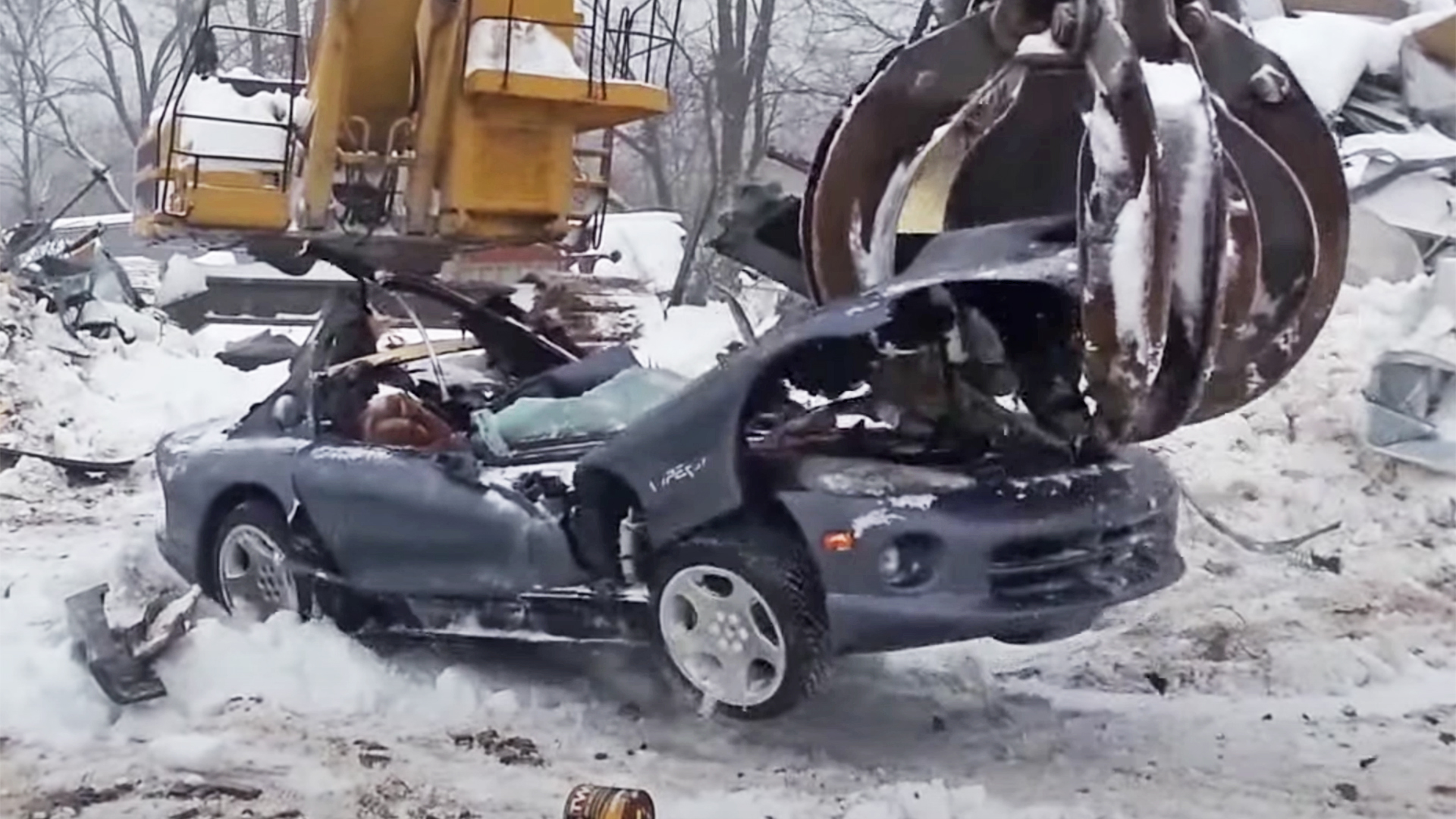

We may earn revenue from the products available on this page and participate in affiliate programs. Learn more ›
Automakers have learned to buy brand loyalty early on, and that’s not just for consumers—it also goes for the technicians working on cars. In fact, carmakers have been known to supply technical schools that have automotive repair programs with their own vehicles to equip the techs of tomorrow with the vehicles of today. There’s only one caveat: typically, those vehicles have to be destroyed after their purpose has been served.
Such was the case six years ago when Fiat Chrysler ordered schools and colleges across the country to destroy 93 different Dodge Vipers that had been donated for educational purposes.
The rarest of the rare belonged to South Puget Sound Community College in Washington. A beautiful pre-production hard top Viper sat amongst a slew of beigemobiles, its Viper GTS Blue paint and white stripes unmistakable in a crowd. It was the college’s pride and joy, making them look “cool and relevant” according to school spokesperson Kellie Purce Braseth. Moreover, it was the fourth Viper ever produced, skyrocketing its value to an estimated $250,000 back in 2014.
Students at the college were so devastated that they even started a petition to convince the automaker to roll back its decision to crush the car.


Now, this wasn’t a surprise for schools. When they agreed to take in the Vipers as a learning tool, they all signed agreements which outlined how the vehicles would be used and eventually retired. When FCA made the call to have the vehicles destroyed, it determined that the car’s technology was no longer relevant to technicians entering the field, meaning that all of these units—including VIN #4—were destined for the scrap heap.
Keep in mind that Fiat-Chrysler still technically owned these vehicles despite them living out their days at trade schools. And while being no longer technically relevant, it became a liability to have them sitting around and no longer being used for students to learn on. It was rumored that at least two of these pre-production units made their way onto public roads and were involved in accidents, though Fiat Chrysler denied that any legal proceedings related to the Vipers which were donated to educational institutions at the time of original reports.
“Approximately 10 years ago, Chrysler Group donated a number of Dodge Viper vehicles to various trade schools for educational purposes. As part of the donation process, it is standard procedure—and stipulated in our agreements—that whenever vehicles are donated to institutions for education purposes that they are to be destroyed when they are no longer needed for their intended educational purposes,” wrote FCA in a 2014 statement on the matter.

So with no perceived educational value and many of the units being used as eye candy rather than their intended purpose, there’s not much left to persuade the automaker to keep these cars around a little bit longer. Apparently not even claims of historical value, as FCA noted in its same statement, emphasis ours:
“Chrysler Group fully understands and appreciates the historical significance of the Viper and is very active in preserving many of its legendary models and designs for historic purposes however, none of these vehicles fit into this category.”
Six years later, with the Viper out of production, that Fiat Chrysler ordered these gems to be crushed has become an overlooked and extremely unfortunate footnote in the history of the car. Unfortunately, all of these cars have went the way of the EV1, so it’s too late to save the Vipers. I suppose it’s best to consider this a lesson in whatever the automotive equivalent of Moore’s Law might be. No matter how much we romanticize cars, at the end of the day it’s just business for automakers.
Got a tip? Send us a note: tips@thedrive.com
